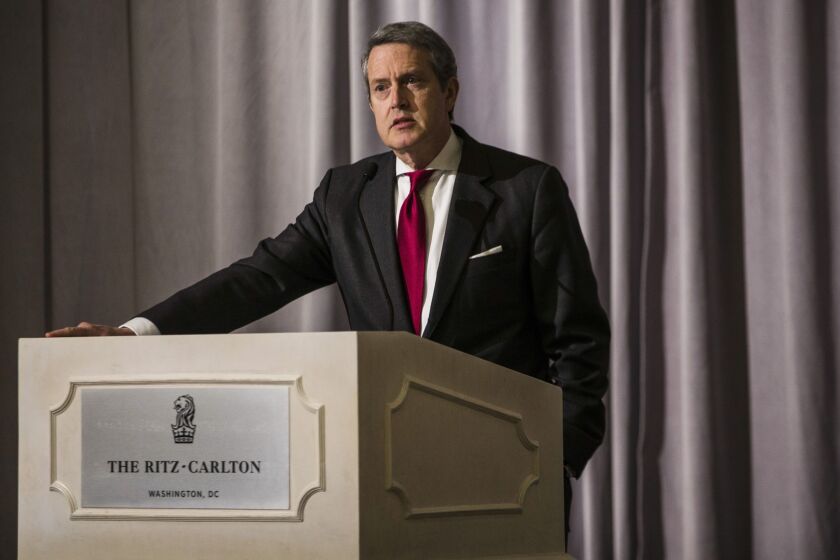Members of both parties raised concerns that the requirements for participating in the Municipal Liquidity Facility and Main Street Lending Program are too restrictive to benefit smaller localities and certain midsize firms.
The Ohio Democrat's criticism of Rodney Hood, chairman of the National Credit Union Administration, echoed complaints from bankers that the regulator was using the chaos from the pandemic to push through changes.
As special IG for the Treasury’s allocation of $500 billion in aid, Brian Miller could look into funding for Fed credit facilities. But Democrats on the Senate Banking Committee questioned his independence.
In separate letters to Congress, the Fed asked for legislative action to ease Tier 1 capital minimums while the FDIC said it may use its own authority to address the market strain on banks.
The Senate Banking Committee chair will work with the heads of other panels in overseeing the $2 trillion stimulus package that Congress passed last month.
Sherrod Brown, the top Democrat on the Senate Banking Committee, explains why consumer protection is so important as the coronavirus pandemic ravages the economy.
Measures that delay the Current Expected Credit Losses standard and reduce a community bank capital ratio are temporary, but the industry now sees an opening to argue that they should be permanent.
While analysts agree banks are in better shape than in 2008, lawmakers are dusting off a crisis-era tool used by the Federal Deposit Insurance Corp. to soothe potential liquidity fears during the coronavirus pandemic.
The $2 trillion deal passed by the Senate late Wednesday would aim to put banks and consumers alike on stronger financial footing as they weather the coronavirus pandemic.
Congressional Democrats want forceful action to prevent damage to millions of Americans' credit scores during the COVID-19 pandemic. But the credit bureaus argue that the tools needed to protect consumers are already in place.













